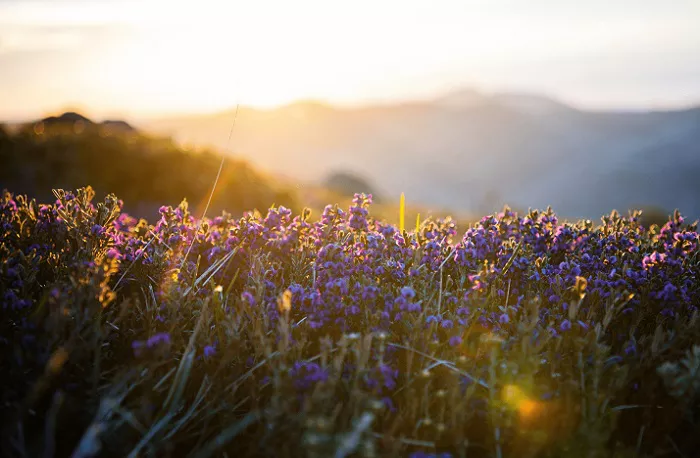As winter settles over Victoria, the state’s diverse natural landscapes transform into a dramatic backdrop of snow-dusted peaks, mist-laden forests, and serene coastlines. With summer crowds gone and a crisp chill in the air, the colder months offer an ideal opportunity to explore Victoria’s parks in peace. From alpine adventures to coastal encounters, here are ten standout winter experiences to enjoy across Victoria’s parklands.
1. Experience Snow in Alpine Parks
Between June and August, Victoria’s alpine parks are blanketed in snow, creating ideal conditions for tobogganing, snow play, and cross-country skiing. Key destinations include Mount Buffalo’s Cresta Valley and Dingo Dell, the trails at Dinner Plain in Alpine National Park, family-friendly Mount St Gwinear in Baw Baw National Park, and Lake Mountain’s resort and waterfalls. Travellers are advised to plan ahead and come prepared for unpredictable mountain weather by packing blankets, food, water, a torch, and ensuring vehicles have a full tank of petrol.
2. Walk Misty Trails in Tall Forests
Winter fog brings a sense of magic to Victoria’s towering forests. Notable trails include:
-
Hopetoun Falls (Great Otway National Park) – A short walk leads to dramatic rainforest views and a 30-metre waterfall.
-
Sherbrooke Falls Loop (Dandenong Ranges National Park) – This 6km trail winds through Mountain Ash forest and fern gullies.
-
Corrigan Suspension Bridge (Tarra-Bulga National Park) – A 2.6km loop offering canopy views from a dramatic suspension bridge.
Rangers recommend visiting in the early morning for the most atmospheric mist.
3. Spot Whales Along the Coastline
Winter marks peak whale-watching season in Victoria. Visitors can spot Southern Right and Humpback whales from vantage points such as Cape Nelson State Park, Wilsons Promontory Lightstation, Gabo Island, and Flinders Ocean Beach. For a closer look, guided tours led by Licensed Tour Operators offer insights into marine life and local conservation efforts.
4. Enjoy a Cosy Getaway at Wilsons Promontory
Wilsons Promontory National Park provides a peaceful winter retreat with a range of self-contained accommodations, from cabins and huts to glamping-style tents. Winter’s lower visitor numbers also mean a better chance of seeing native wildlife along the beaches and walking tracks.
5. Stargaze Under Clear Winter Skies
Longer nights and crisp air create ideal stargazing conditions. Recommended locations include Murray-Sunset National Park (renowned for its Pink Lakes and clear skies), Cape Otway Lightstation, the Grampians (Gariwerd) National Park, and Cape Schanck Lighthouse Reserve near Melbourne. Stargazers are advised to travel in groups, bring adequate supplies, and inform someone of their whereabouts when venturing out after dark.
6. Hike in the Grampians (Gariwerd)
Winter is a spectacular time to visit the Grampians. Waterfalls such as MacKenzie Falls are in full flow, and the cooler temperatures make hiking more comfortable. Highlights include The Pinnacle, Venus Baths, Boroka Lookout at sunrise, and reopened sections of the Grampians Peaks Trail. Visitors should check conditions and closures before travelling and begin their trip at the Brambuk National Park and Cultural Centre.
7. Try Winter Camping
For those prepared for cold nights, winter camping offers solitude and scenic beauty. Campgrounds are quieter, and where permitted, campfires add to the atmosphere. Warm gear, including a high-quality sleeping bag and insulated mat, is essential. Parks Victoria is offering free camping at select sites until 30 June 2025 (bookings required), with half-price stays from 1 July onward.
8. Beat the Winter Blues in Urban Parks
Melbourne’s urban parks provide easy access to sunlight and greenery. Parks such as Albert Park, Werribee Park, Yarra Bend Park, Jells Park, Braeside Park, and the Dandenong Ranges Botanic Garden offer scenic spaces for walks, picnics, and barbecues—ideal for boosting mood and staying active during shorter days.
9. Pair a Park Visit with the East Gippsland Winter Festival
Running from 20 June to 20 July, the East Gippsland Winter Festival features over 100 events celebrating food, light, music, and culture. Visitors are encouraged to extend their stay with trips to nearby natural attractions such as Alpine National Park, Croajingolong National Park, Cape Conran Coastal Park, Buchan Caves Reserve, and Lake Tyers State Park.
10. Join a Free Guided Park Walk
Park Walks offer an accessible way to explore Victoria’s natural beauty while improving physical and mental wellbeing. These volunteer-led group walks cater to all fitness levels and ages, and provide insights into the cultural and natural heritage of each site. Walkers only need comfortable footwear, and bookings are essential.
Visitor Safety
Before setting out, travellers are advised to check park conditions and closures via the Parks Victoria website. Alerts are displayed prominently on individual park pages, indicating potential hazards or temporary closures.


